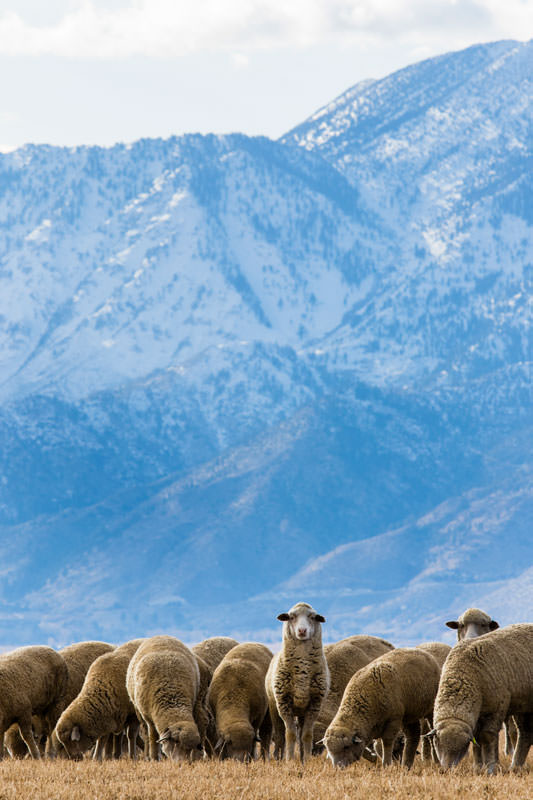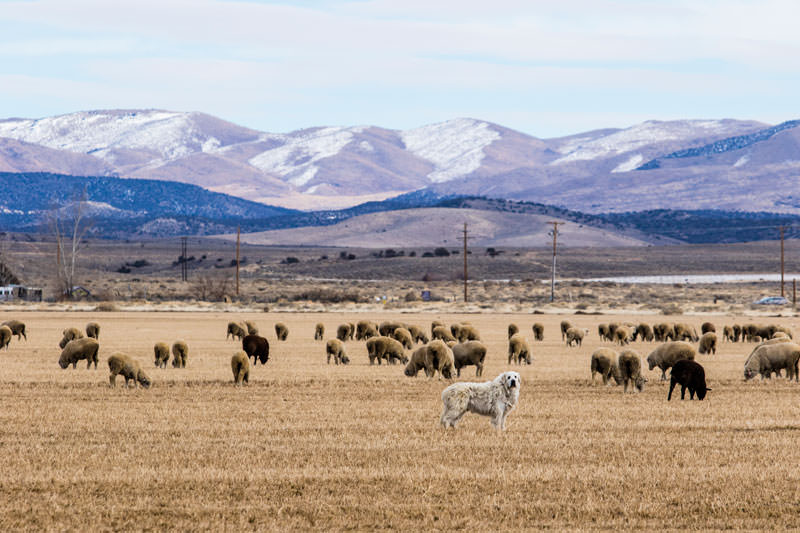Borda Ranch brings Old Country tradition to sheepherding.
In 1914, Raymond Borda made the journey from an area of France under heavy Basque influence to become a sheepherder in the Wild West. Just two years later he found himself shepherding his own sheep business and ranch in Carson Valley. Today, his son, Ted Borda, along with his sisters, Joyce Borda Gavin and Angie Borda Page, runs Borda Ranch, which is steeped in Basque customs and family heritage.
Out on the Range
With three bands of more than 1,000 sheep each, you could say the Bordas have a lot going on.
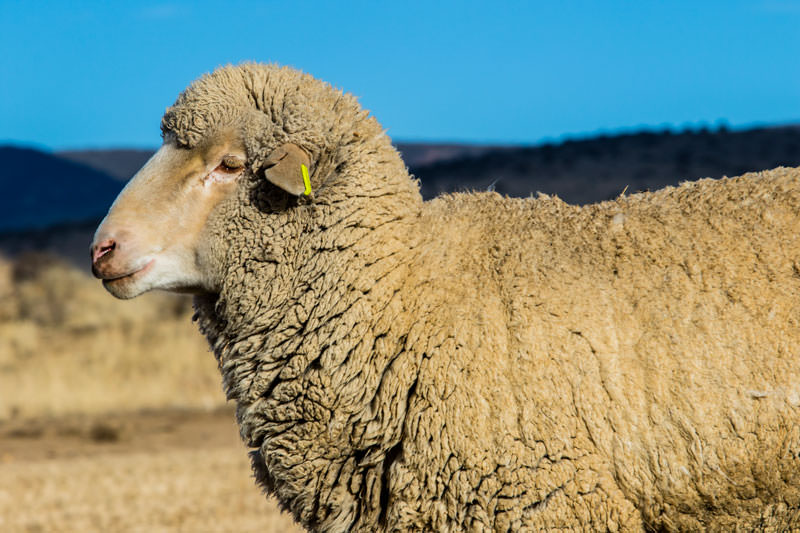
“We raise the sheep and let them eat on the meadow grasses throughout the Great Basin range,” Ted explains. “The Basque style is free range, herding them along, [with the sheep] eating the high meadow grasses, and enjoying the fresh mountain air and water.”
This time of year brings a new bunch of lambs along with the ewes and rams to the countryside. A team of sheepherders and highly trained Great Pyrenees guard dogs move the flock across federal land in the area. The camps are comprised of small travel trailers, with few creature comforts but a tremendous payoff in locale.
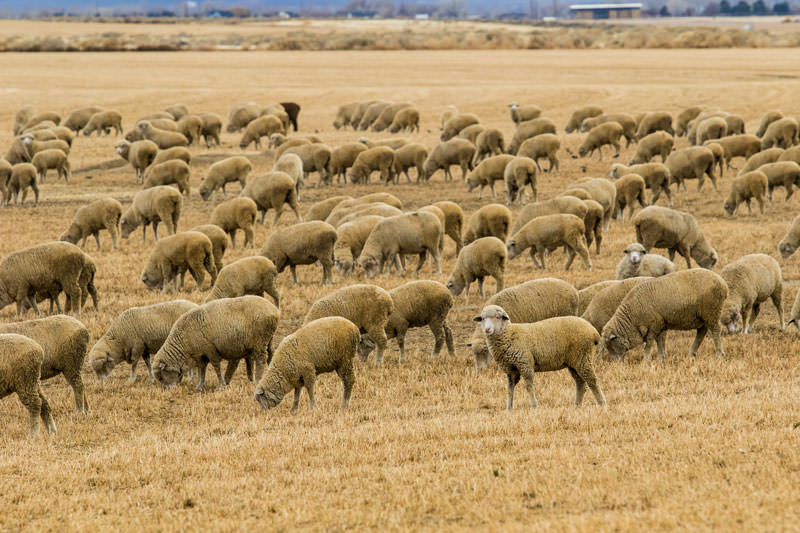
“We have to bring water in and will find these guys tucked in some of the most beautiful countryside. Nothing beats it,” Ted adds.
Along with filling the family’s stomachs, the sheep also provide protection against ever-present wildfires.
“We work with the U.S. Forest Service and Bureau of Land Management to graze the sheep to take care of cheatgrass and any weeds to help suppress fires from becoming rampant,” he says. “It’s a win-win for the sheep, the surrounding communities and land, and the government.”
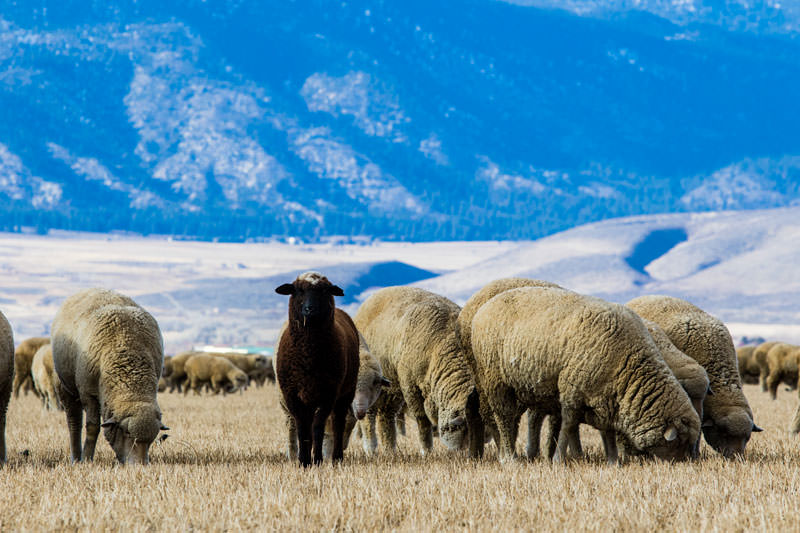
Sheep’s Clothing
Borda Ranch’s proprietary breed of sheep always has been raised here for two reasons — its exceptional wool quality and succulent meat. Starting mid-February, a shearing crew of about 12 gets to work trimming the winter coats off thousands of sheep.
“It’s comical,” Ted says with a laugh. “There are a dozen guys loaded in this trailer, and it’s military style. One sheep goes through at a time. They start fluffy and come out with buzz cuts.”
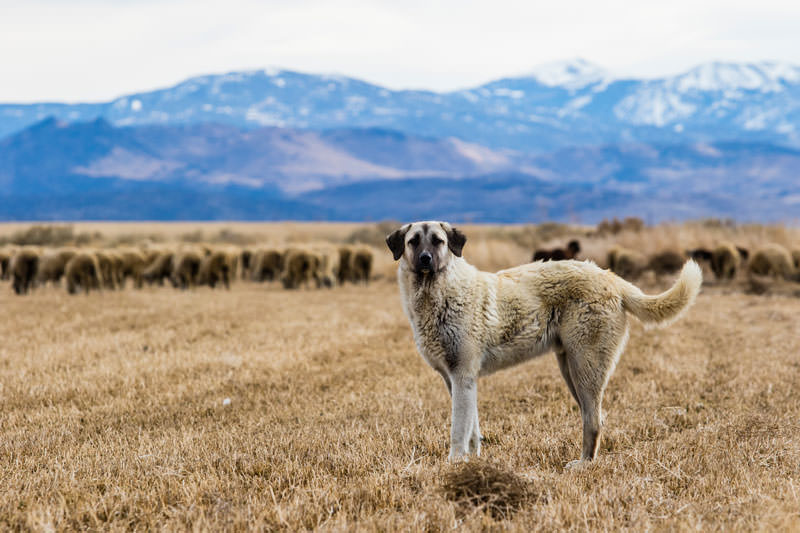
After the wool is sheared, it’s put in bales and sent to mills in Oregon and other places, where it’s used to make products for Pendleton, a renowned wool clothing and blanket company, and blanket manufacturers. Some also is sold on the open market to various buyers. Ted notes that with a rich fiber count, the wool always is sold at top price and is a big source of income for the ranch.
Racks of Lamb
Borda Ranch lamb meat is available for purchase at Butcher Boy Meat Market in Reno and Bently Ranch Butcher Shop in Minden.
“With a nutritious diet from the range and some healthy grains, the quality of the meat stands by itself,” Ted says. “Ours doesn’t have a gamey flavor; it’s more of a red-meat, beefy flavor.”
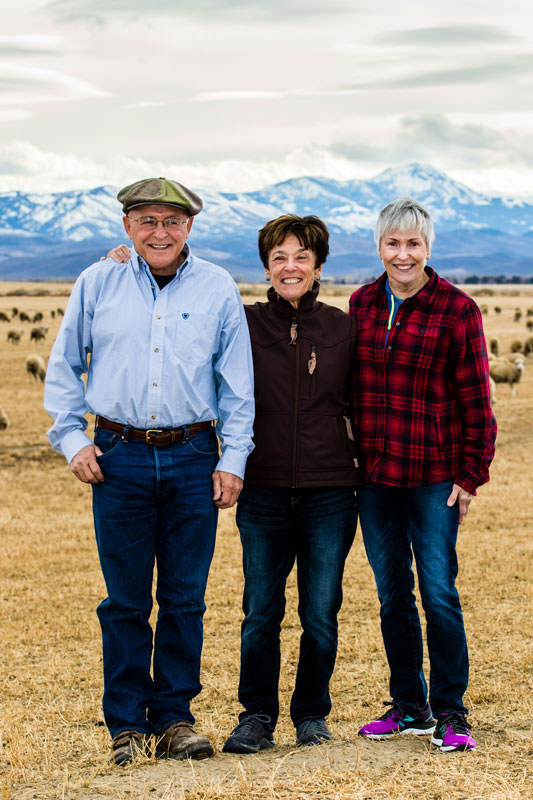
He recommends a simple sprinkling of salt and pepper before throwing a piece of lamb on the grill. In true Basque fashion, serve alongside roasted garlic. Another favorite is to cube a shoulder roast and skewer it with peppers and onions for kebabs. A lean meat with a bit of fat, the lamb also makes great sausages and burgers. Ted urges folks to keep the mint jelly in the pantry and enjoy the pure taste of sheep raised in the Sierra.
Having spent her youth in Elko with many friends of Basque heritage, Heidi Bethel always has enjoyed learning about their customs and eats the delicious cuisine whenever she gets the chance.
